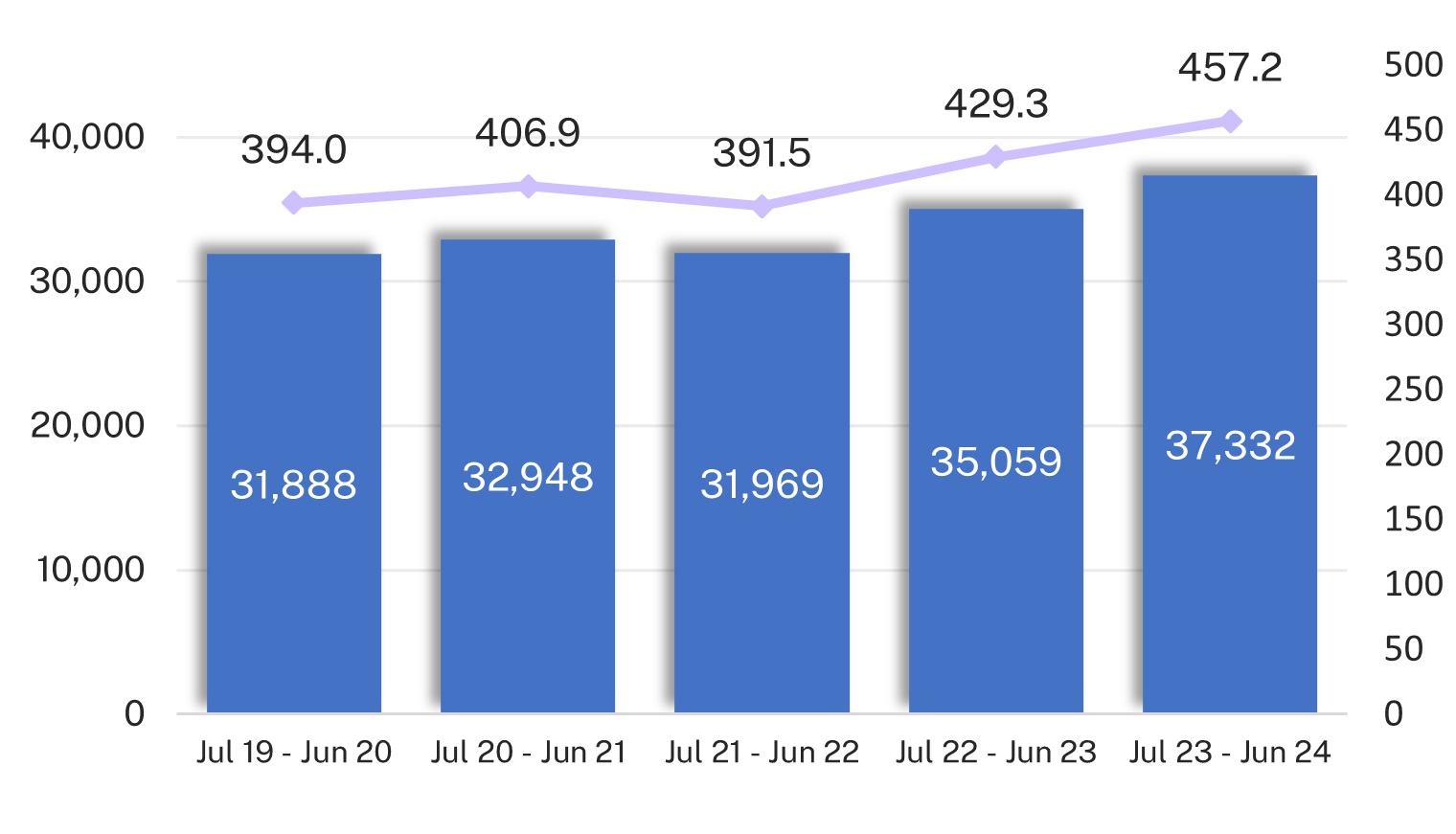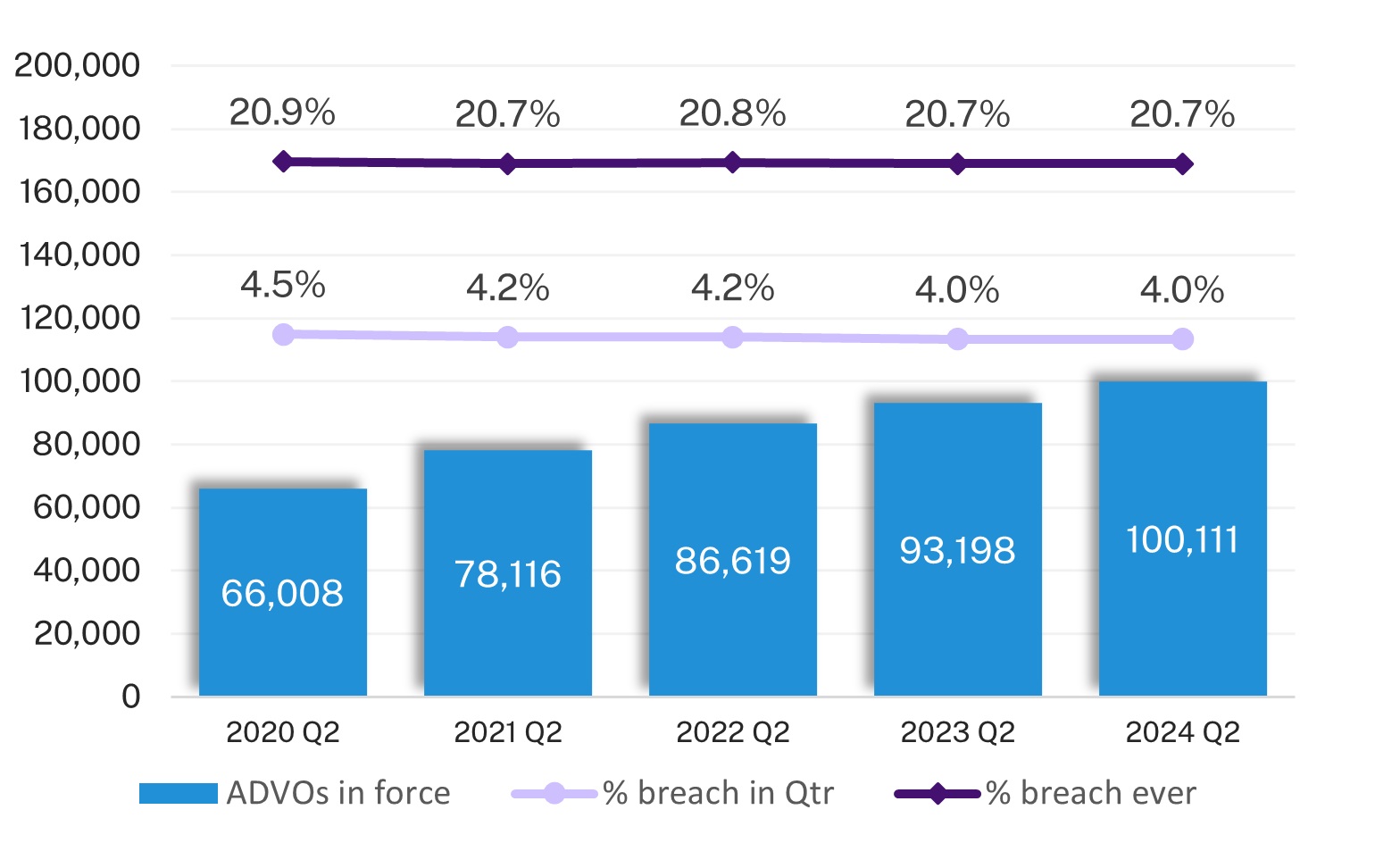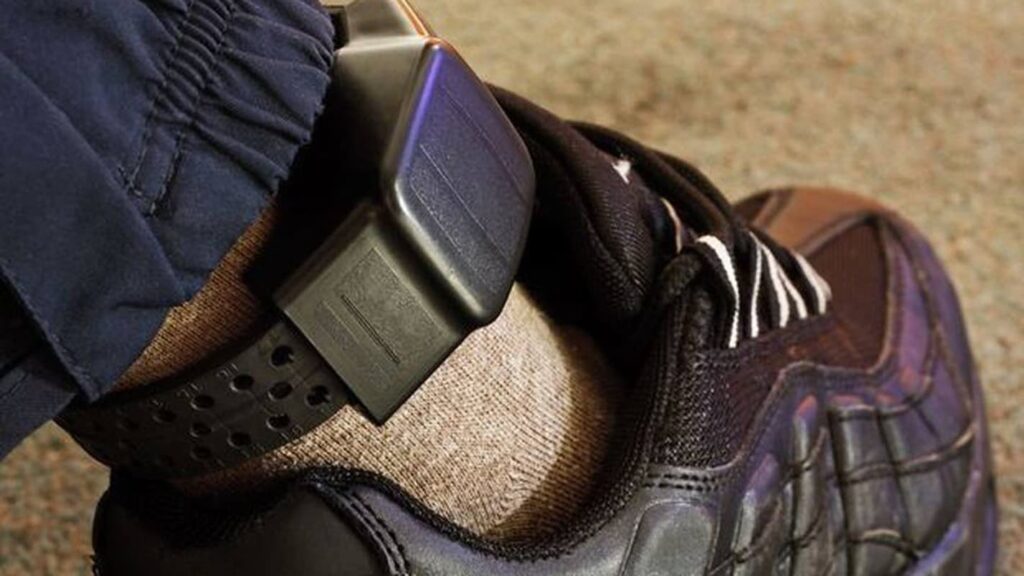NSW Introduces electronic monitoring for DV Offenders Granted Bail
Alleged perpetrators charged with serious domestic violence offences in New South Wales will now be required to wear ankle bracelets and have their movements tracked if they are granted bail.
The NSW Government announced the changes would take effect on Friday October 11, and would involve corrective services electronically monitoring alleged perpetrators against geographic bail conditions using GPS technology.
Earlier this year, the NSW Government significantly tightened bail laws for people charged with serious domestic violence offences, forcing them to ‘show cause’ why they shouldn’t be detained. This change has made it harder than ever for alleged serious domestic violence offenders to get bail.
From Friday, any alleged serious domestic violence offender who is granted bail will be electronically monitored around the clock using GPS technology.
The new program allows Corrective Services NSW (CSNSW) to track alleged offenders against geographic bail conditions.
These exclusion zones may include residential addresses, school and work locations, or suburbs or areas within a city for people in need of protection.
If an alleged offender enters a restricted zone, CSNSW’s electronic monitoring officers are immediately notified.
Corrections officers will contact NSW Police to advise that a potential breach of bail conditions has occurred and NSW Police can then respond.
This builds on the around-the-clock monitoring of certain offenders already conducted by Corrective Services NSW, including the monitoring of high-risk domestic violence perpetrators on parole orders or Intensive Correction Orders.
These tough new laws are one part of the NSW Government’s work to strengthen protections for victim-survivors of domestic, family and sexual violence, the Government states.
The Government has also introduced legislation to create Serious Domestic Abuse Prevention Orders. These new orders will allow the court to impose any conditions considered appropriate to prevent a person’s involvement in domestic abuse.
In addition, this legislation would create new offences covering repeated and intentional breaches of Apprehended Domestic Violence Orders.
Under earlier Minns Labor Government justice system reforms:
- The categories of offences for which bail decisions can be ‘stayed’ were expanded, with the accused remaining in custody while prosecutors challenge the decision to grant bail.
- For all domestic violence bail decisions, judges and magistrates must now consider, where relevant, domestic abuse risk factors and the views of victims and their family members.
- All bail decisions will be made by judges and magistrates.
According to women's group Destroy the Joint, 54 Australian women have allegedly been killed in an act of violence this year. Another group, Australian Femicide Map, states the number is 65 as of October 9.
Data recorded by the NSW Police in 2023 shows that 1 in 10 victims of domestic assault are young people, 3 in 5 are women and Aboriginal women are 8 times more likely to be recorded as a victim.
Data recorded by the NSW Police in 2023 shows that 1 in 10 domestic assault offenders are young people, three quarters of offenders are men and 7 in 10 incidents of domestic assault results in legal action.
For the period from July 2023 to June 30 2024 there have been 31 domestic violence related murders recorded by the NSW Police, which includes 3 children.
The chart below shows the number and rate of domestic violence related assaults recorded by the NSW Police.

Chart: BOSCAR
The chart below shows the number of Apprehended Domestic Violence Order (ADVO) in force each quarter in NSW, plus the proportion that were breached.

Chart: BOSCAR
In May this year NSW Police carried out a four-day blitz targeting domestic violence offenders across the state — 554 arrests were made and 1,070 charges were laid. Operation Amarok was one of the high-intensity programs run by police across Australia targeting the complex crime of domestic violence.
In February 2024 Operation Amarok V was conducted by the NSW Police.
NSW Police states these ''enables us to address domestic and family violence with the seriousness it warrants. It’s about precision in targeting the most dangerous offenders; the ones who pose a significant threat to victims, to family members, to other members of the community.''
''Throughout the four-day operation, almost 600 people with serious domestic violence offences. Police also conducted 131 Firearms Prohibition Order (FPO) compliance searches, and 5,493 Apprehended Domestic Violence Orders (ADVOs).'' - Feb., 2024
NSW Police have announced frequently this won't be their last blitz on domestic violence offenders.
After family violence was announced a national crisis by Prime Minister Anthony Albanese earlier this year, the Australian government launched its 'First Action Plan', detailing the government's plan to address the troubling rates.
Their report shows that despite some structural and policy changes made to prevent violence against women, much of the change is still in its infancy and will require more work and funding.
The NSW Government announced a $246 million package in the NSW Budget to address domestic, family and sexual violence through crisis response measures, early intervention, primary prevention, and justice system responses.
If you or someone you know is affected by domestic, family or sexual violence, please call the toll-free number 24 hours a day, 7 days a week for support on 1800RESPECT (1800 737 732) or visit 1800respect.org.au
Deputy Premier Prue Car said on Friday:
“The NSW Government is committed to curbing the unacceptable rate of domestic, family and sexual violence within our community, and monitoring alleged offenders is key to that.
“It’s harder now for alleged domestic violence offenders to get bail, but if they do, these new monitoring devices ensure Corrective Services will be able to keep an eye on their movements.”
Attorney General Michael Daley said:
“Earlier this year the NSW Government toughened bail laws that raised the threshold and added additional factors to be considered before bail could be granted for alleged serious domestic violence offenders, placing the onus on them to show the court why their detention isn’t justified.
“We’ve seen an increasing number of alleged serious domestic violence offenders on remand, signalling these bail reforms are indeed working.
“Domestic violence is an abhorrent crime and one that the NSW Government will not tolerate.”
Minister for Corrections Anoulack Chanthivong said:
“Women, children, and others in danger deserve to live their lives in safety, free from the threat of domestic violence.
“Corrective Services NSW has the specialist knowledge and robust systems in place to help successfully expand existing electronic monitoring of offenders on parole or subject to community corrections orders to those on bail.
“This intense monitoring shows alleged domestic violence offenders how serious the government is about preventing domestic violence on all fronts.”
Minister for the Prevention of Domestic Violence and Sexual Assault Jodie Harrison said:
“Electronic monitoring of people accused of serious domestic violence while they are out on bail prioritises victim-survivors’ safety and ensures alleged perpetrators abide by their bail conditions.
“This is one part of a coordinated, multi-pronged response to addressing domestic and family violence in our state that includes earlier intervention and primary prevention.
“The NSW Government is also working with the sector and victim-survivors as we continue to provide holistic, trauma-informed, wraparound support for victim-survivors who are escaping violence.”
Acting Commissioner Corrective Services NSW Leon Taylor said:
“The expansion of our existing electronic monitoring system allows us to track serious alleged domestic violence offenders.
“In the case of a suspected breach our Corrective Services officers will immediately notify police so they can take action.
“If we hold concerns for a person in need of protection, the Corrections team will be able to pick up the phone and alert them to a potential bail breach in real time, allowing them to enact their safety plan.”
Women’s Safety Commissioner Dr Hannah Tonkin said:
“Domestic and family violence disproportionately affects women, so it’s vital for the NSW Government to continue implementing reforms like this to better protect at-risk women across the community.
“These changes will give victim-survivors of domestic and family violence greater peace of mind and support their safety planning while the matter is dealt with in the courts.”
